Throughout the month of May, I now have plans immediately following the airing of HBO’s Succession episodes on Sunday nights. That’s to head from an obscenely wealthy family in the vague present to another 280-ish years in the past. I’m talking about ITVX/PBS Masterpiece’s newest adaptation of The History of Tom Jones, a Foundling.
On a surface level, this looks like another historical romance adapted into a series that features a diverse cast. Netflix’s Bridgerton is certainly not the first show to do this, but it’s hard not to draw comparisons, especially when one of the leads is a person of color. (And there’s a lot of sex—yes, on PBS.) Sure, two historical romance adaptations with race-swapping can exist in public conversation without the need to compare, but after finishing the first episode of the four-part Tom Jones series, I’m more let down than ever by Bridgerton‘s handling of race. Where Bridgerton flails, Tom Jones soars.
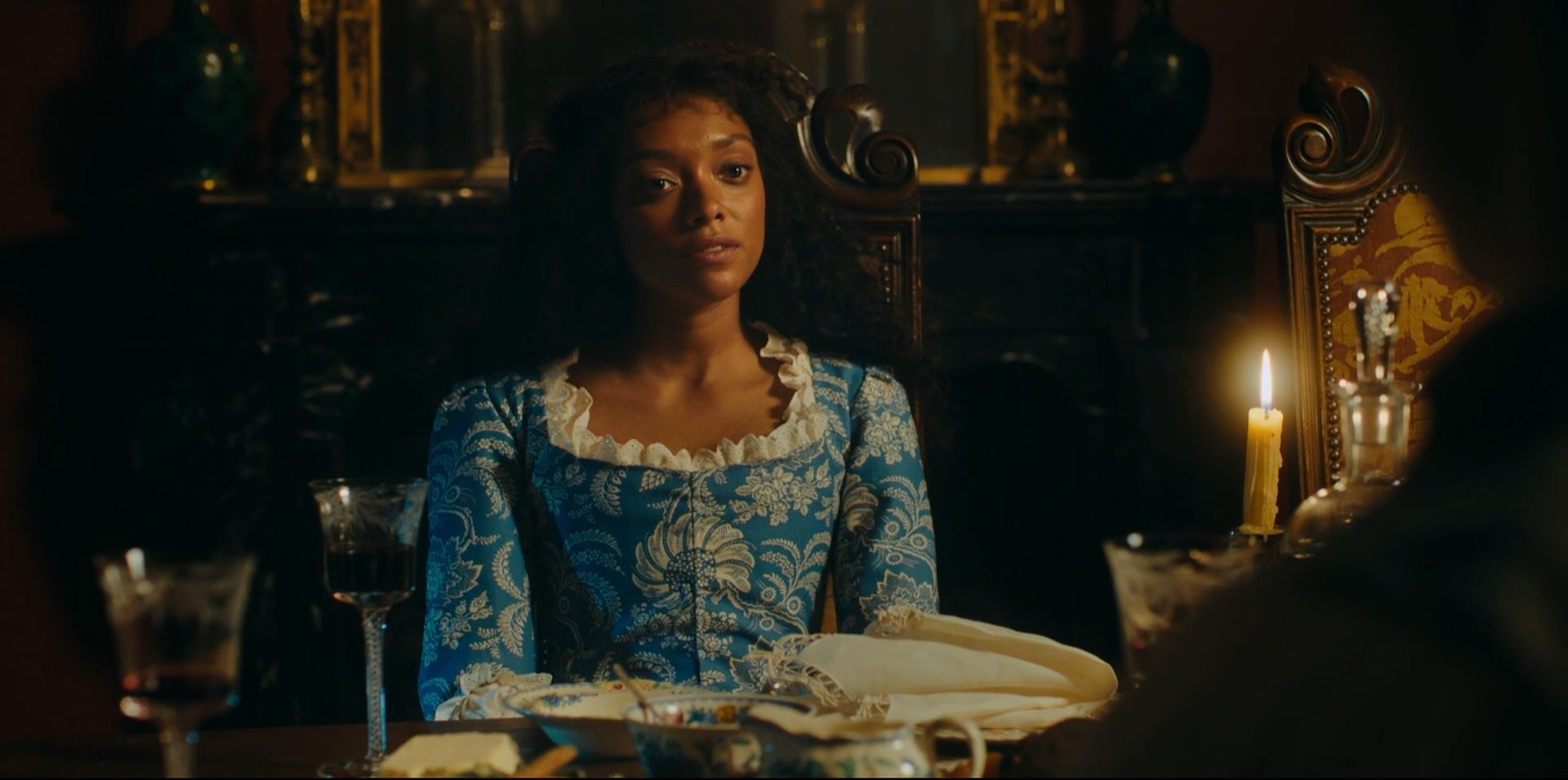
Written by British author Henry Fielding in 1749, Tom Jones is a four-part comedy following the romance between the neighboring children of squires, landlords and mini-judges over large country estates. Tom is an adopted bastard son of Squire Allworthy, and Sophia is the daughter of Squire Western. There’s a lot more, but I’ll save that for the show. In this adaption, Tom (played by Solly McLeod—whom you may recognize as Ser Joffrey Lonmouth from HBO’s House of the Dragon) is largely the same as the book version of Tom. As of episode one, the major change comes instead for Sophia (played by Sophie Wilde).
How Tom Jones handles race
Instead of being Squire Western’s daughter, Sophia is his granddaughter, sent to live in the country following the death of her father. Upon her arrival at the estate around age six, her grandfather (played by Alun Armstrong) immediately accepts her, torn up by how much she resembles her father (his son). Sophia’s Blackness comes from being the child of a slaver who sexually assaulted her enslaved mother. The first time this is revealed, the story is softened. However, as the episode continues, we get more details.
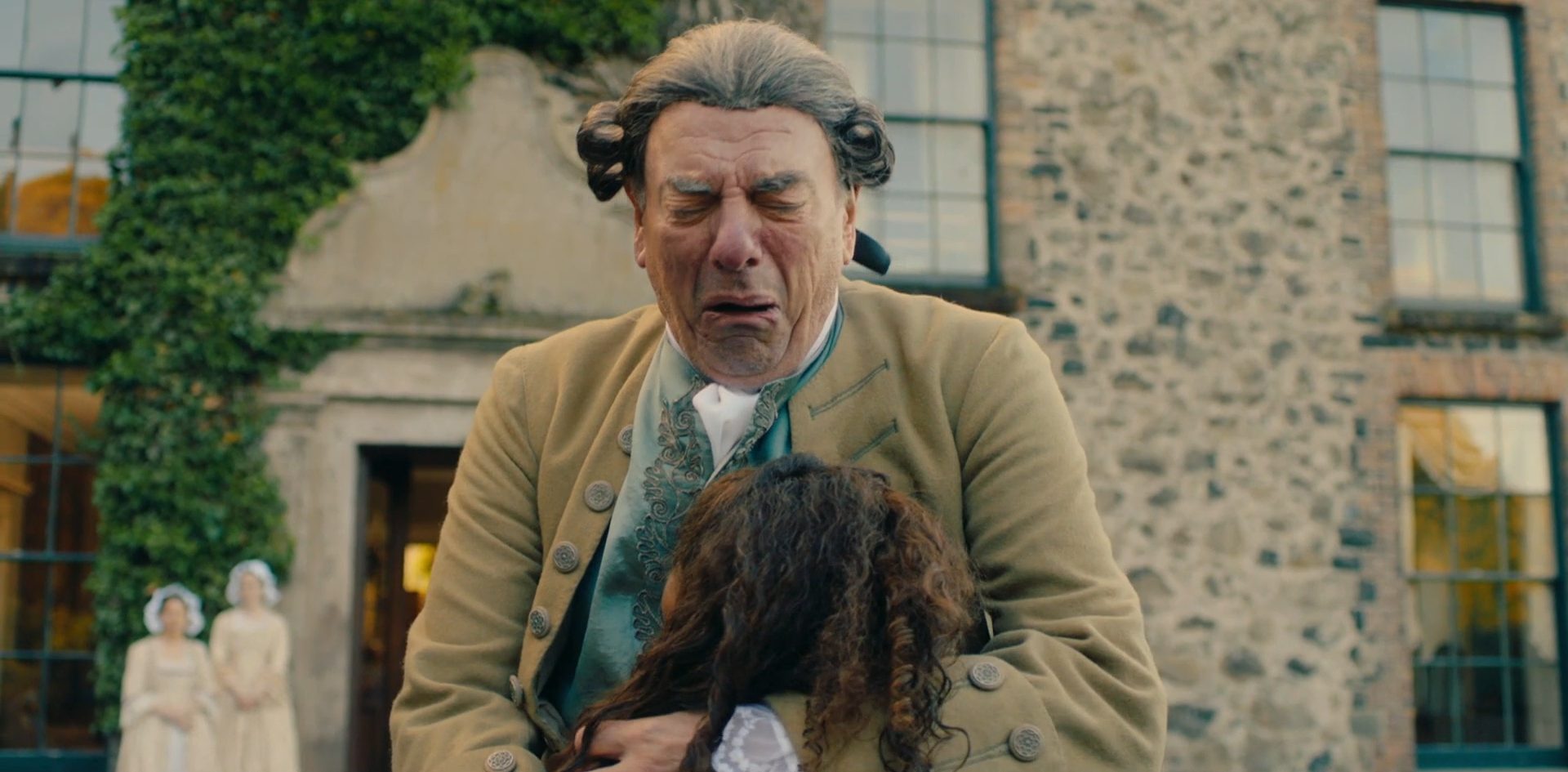
Every time I look at her, I’ll see the son who lies buried in a foreign field.”
(PBS Masterpiece)
Later, as an adult, Sophia reveals her mother died from childbirth. In a vulnerable moment with Tom, Sophia explains that her father granted her freedom in his will. When Tom is perplexed by the details of chattel slavery, she explains that her means of freedom is an outlier. Leaving Jamacia so young, Sophia harbors complex feelings about her heritage and freedom. Tom Jones touches on racism and slavery just “enough” to explain the complexities of Sophia’s circumstances.
This choice also adds a layer to the budding romance between the couple. Both characters feel like outsiders in their homes and wrestle with the concept of legitimacy. They must navigate this very differently due to gender and racial differences. Sophia feels the stares of others. Many (including his own family) will not let go of Tom’s ward status. Although Tom is not ready to pursue a serious relationship initially, he feels a connection with her. Sophia tells her lady’s maid, “unlike everyone else around here, he doesn’t look at me as though I’m some kind of exotic flower.”
Where Bridgerton fails
By comparison, there’s Bridgerton, which … *checks notes* became a colorblind society because King George III (a real historical figure) married a Black woman (Queen Charlotte). Netflix’s hit regency romance could have existed as an alternate history/fantasy where real-world racism had just never been a problem, but instead butchered it by expecting us to believe that, in a reality that had been like our own up to that point, the trickle-down economics of one interracial romance could eradicate racism (mostly). We know, historically, that that doesn’t work, with countless children of slavers being sold off or passed down in wills. (See Thomas Jefferson’s hostage affair with Sally Hemings.)
Then, there are the issues of colorism, playing into the tragic mulatto trope, and the racial context in a poorly handled issue of consent. No one wants to see slurs thrown, or anything like that, to make Bridgerton “realistic,” but their approach to handling race just wasn’t adequate and took away from what was overall a good story. Many just assumed they would not address race rather than clumsily invent a half-baked reason to check a box. (Especially under a commonly believed false notion.)
Season two of Bridgerton appeared to ignore its “reason” for a racially diverse cast by simply not bringing it up. Additionally, it appeared to improve its issues of colorism, with the introduction of two darker-skinned South Asian leads. However, the choice to dig into the racial context of the show in a Queen Charlotte prequel leaves me unsure of how much was learned. It feels like they didn’t learn, don’t care because the franchise is too profitable to leave money on the table, or feel more confident in retconning this doomed premise.
Quality over quantity
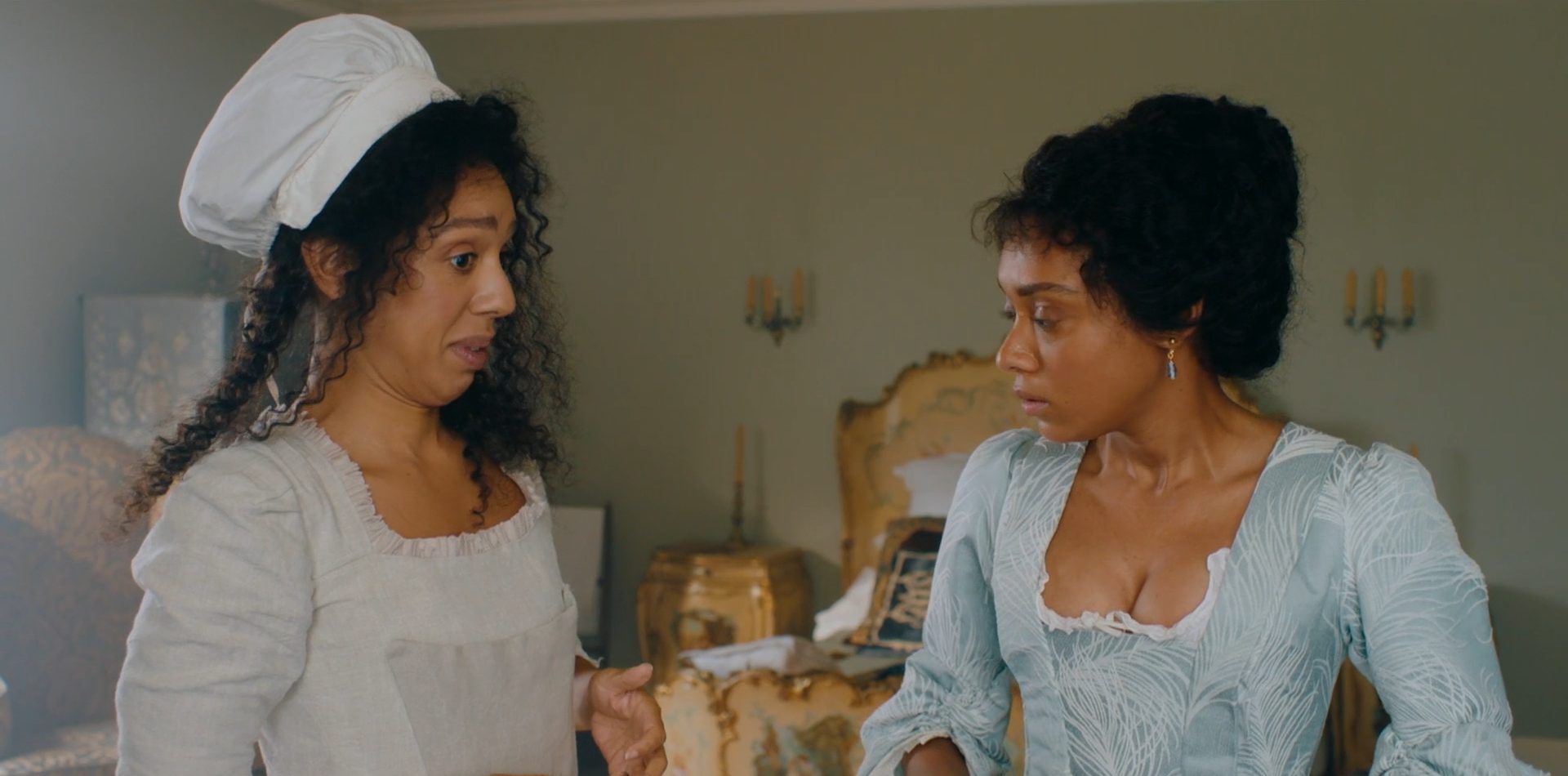
While Tom Jones (so far) has been able to portray this interracial cast appropriately, it does have an advantage not afforded to Bridgerton. With two Black women, a simpler explanation works. More diverse casting overall would require Tom Jones to lean into a fantasy element or develop a good story for every individual situation.
Still, the fly-in-milk approach is susceptible to its own criticism of tokenization. However, numbers alone don’t mean someone is tokenized. Additionally, I’d take a few characters of color written excellently over a higher number explained by a problematic premise. Thus far, in Tom Jones, it’s looking like the only other non-white character will be Sophia’s Lady’s maid, Honour (played by Pearl Mackie). As the confidant and employee, Honour both watches out for Sophia and warns her against falling for a quirked-up white bad boy.
Even as a romcom, the show doesn’t sugarcoat anything. In the spirit of the original novel’s commitment to showing many aspects of class in a critical light, this show upholds that tradition.
(featured image: PBS Masterpiece)



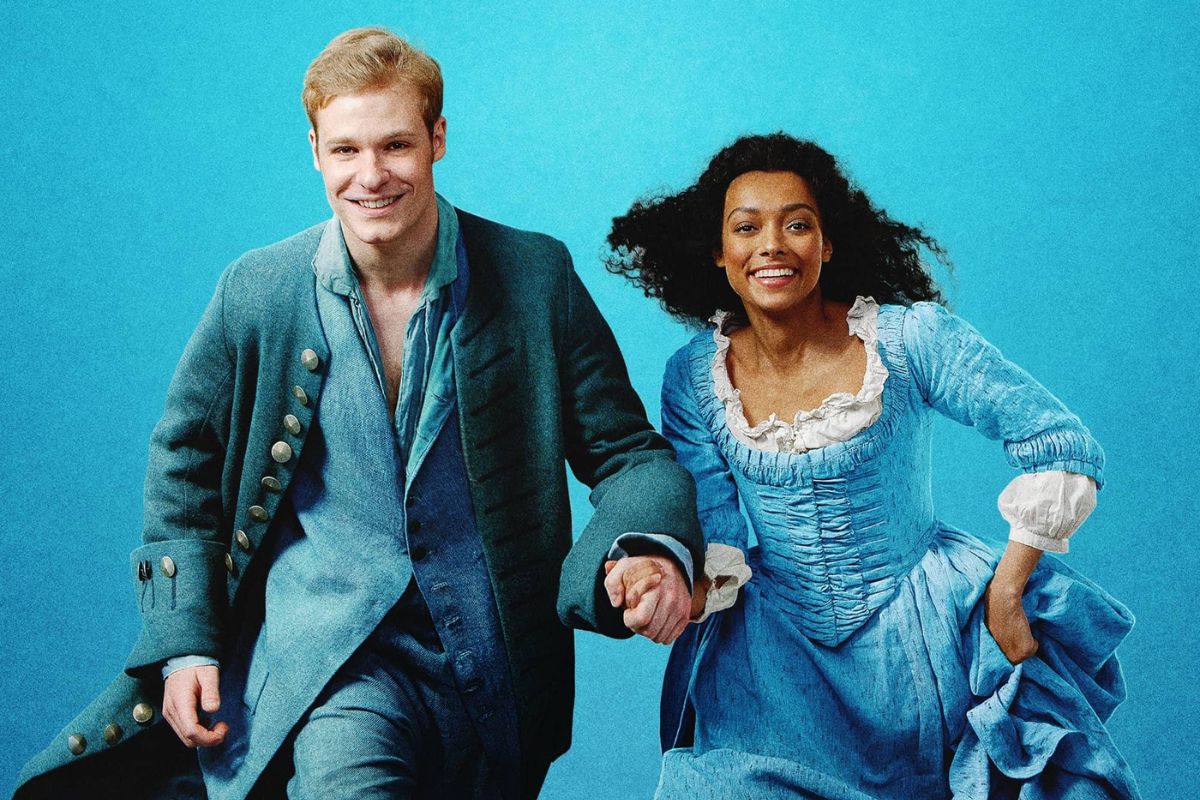


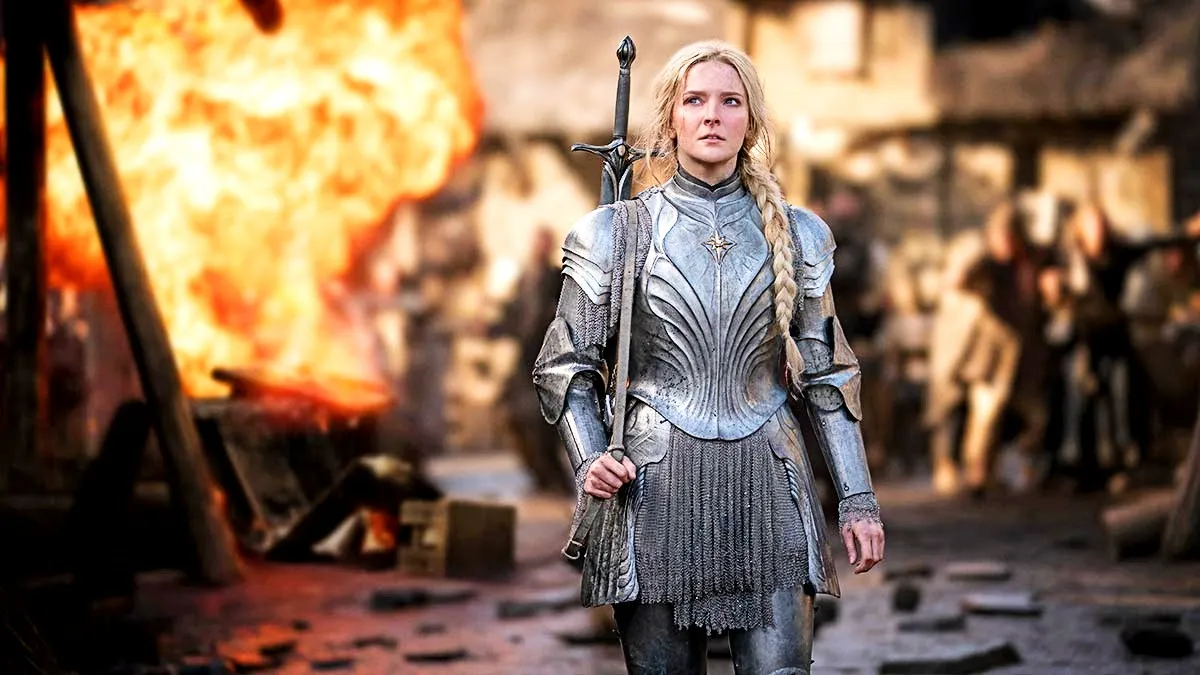



Published: May 4, 2023 10:53 am